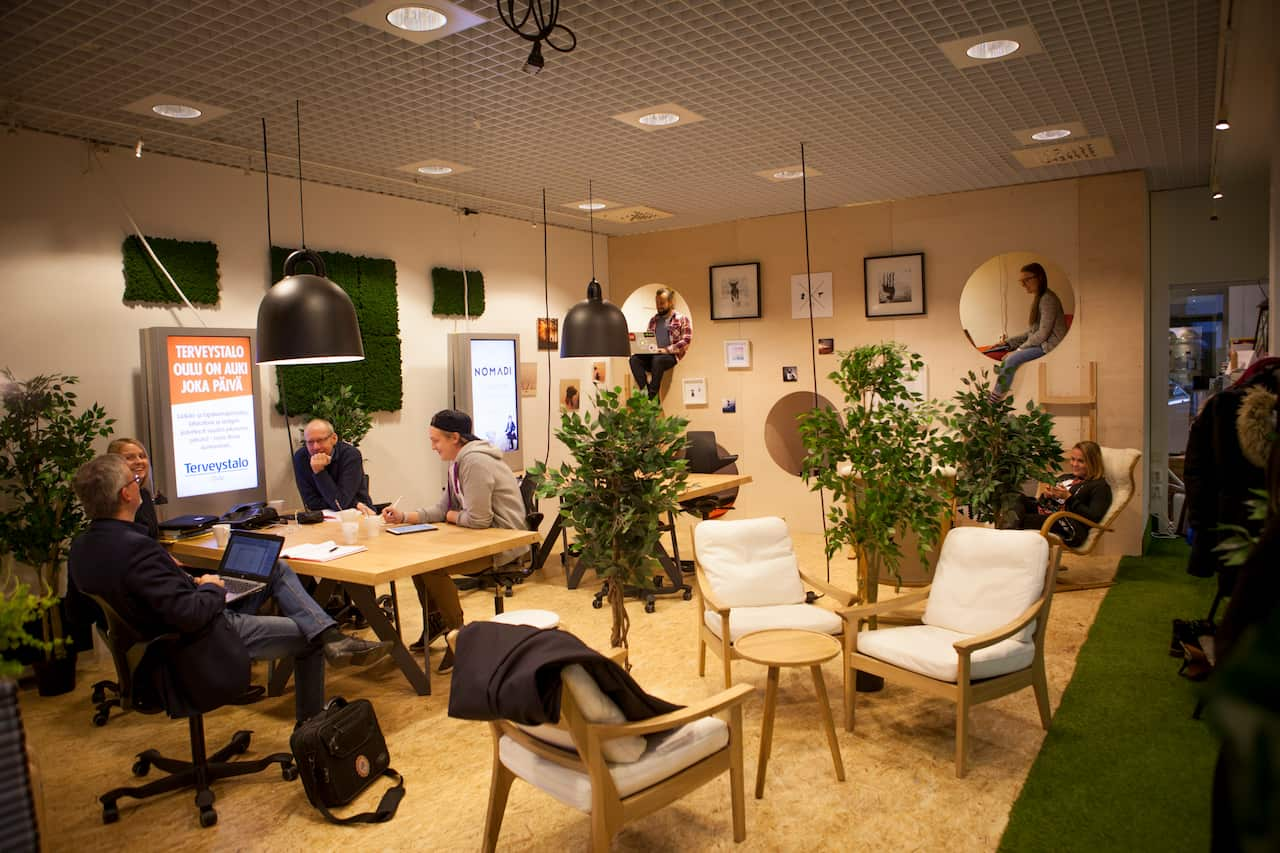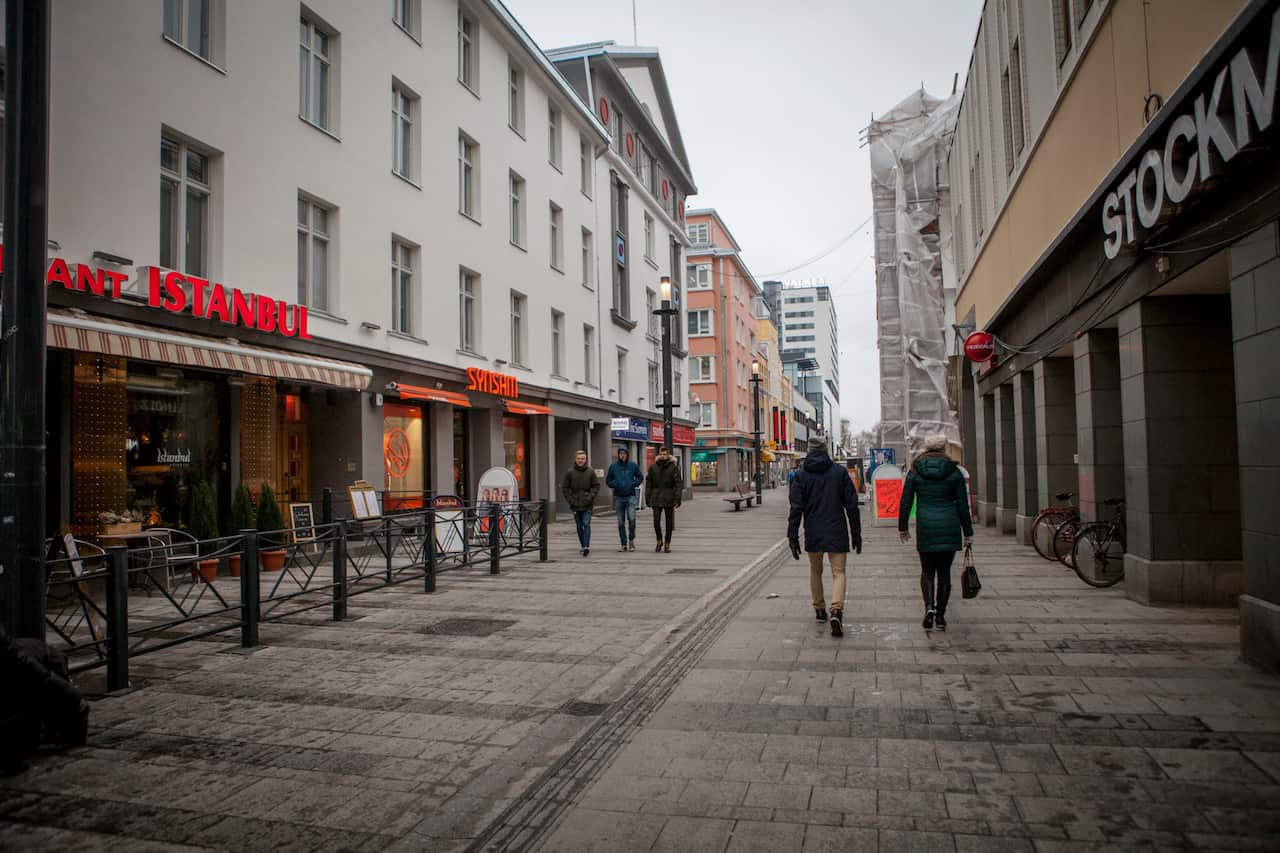For more than a year, Finland has been testing the proposition that the best way to lift economic fortunes may be the simplest: Hand out money without rules or restrictions on how people use it.
The nation’s experiment with so-called universal basic income has captured global attention as a potentially promising way to restore economic security at a time of worry about inequality and automation.
Now, the experiment is ending. The Finnish government has opted not to continue financing it past this year, a reflection of public discomfort with the idea of dispensing government largess free of requirements that its recipients seek work.
Finland has actually reversed course on that front this year, adopting rules that threaten to cut benefits for jobless people unless they actively look for work or engage in job training.
“It’s a pity that it will end like this,” said Olli Kangas, who oversees research at Kela, a Finnish government agency that administers many social welfare programs and has played a leading role in the basic-income experiment. “The government has chosen to try a totally different path. Basic income is unconditional. Now, they are pursuing conditionality.”

The demise of the project in Finland does not signal an end of interest in the idea. Other trials are underway or being explored in the San Francisco Bay Area, the Canadian province of Ontario, the Netherlands and Kenya.
In much of the world, the concept of basic income retains appeal as a potential way to more justly spread the bounty of global capitalism while cushioning workers against the threat of robots and artificial intelligence taking their jobs.
Video below: Dateline explains Universal Basic Income
But the Finnish government’s decision to halt the experiment at the end of 2018 highlights a challenge to basic income’s very conception. Many people in Finland — and in other lands — chafe at the idea of handing out cash without requiring that people work.
“There is a problem with young people lacking secondary education, and reports of those guys not seeking work,” said Heikki Hiilamo, a professor of social policy at the University of Helsinki. “There is a fear that with basic income they would just stay at home and play computer games.”
There is a fear they would just stay at home and play computer games
For centuries, thinkers across the ideological spectrum have embraced the notion of basic income. It has gained favour with social philosopher Thomas More, laissez-faire economist Milton Friedman and civil rights leader Martin Luther King Jr., an unusual diversity of support that has enhanced the appeal of the idea as a modern-day solution to economic anxiety in much of the world.
Silicon Valley technologists have suggested that basic income could enable humanity to exploit the labour-saving promise of robots absent the fear of mass joblessness.
Labour advocates have focused on basic income as a means of increasing bargaining power among workers, limiting the pressure for people to accept poverty wages at dead-end jobs.
Other people have advanced basic income as a way of enabling parents to spend more time with their children.
Finland’s goals have been modest and pragmatic. The government hoped that basic income would send more people into the job market to revive a weak economy.
Under Finland’s traditional unemployment program, those lacking jobs are effectively discouraged from accepting temporary positions or starting businesses, because extra income risks the loss of their benefits.
The basic income trial, which started at the beginning of 2017 and will continue until the end of this year, has given monthly stipends of 560 euros (AU$903) to a random sample of 2,000 unemployed people aged 25 to 58. Recipients have been free to do as they wished — create startups, pursue alternate jobs, take classes — secure in the knowledge that the stipends would continue regardless.

The Finnish government was keen to see what people would do under such circumstances. The data is expected to be released next year, giving academics a chance to analyze what has come of the experiment.
In the meantime, Finland has already moved on to consider a broader revamping of its social service programs. It is studying a new form of social welfare policy now in effect in Britain: so-called universal credit, which rolls existing government aid programs into one monthly lump sum payment.
“The social security system is fragmented and has a lot of bureaucracy,” said Liisa Heinamaki, who is overseeing a project exploring ways to reorganise that system. “Discussion about basic income is not over, but it is a part of the larger discussion now.”
In Britain, the shift to universal credit has poor people reeling, depriving many of them of government support while their cases shift from the old system. Benefits have increased for some people, but many recipients have wound up with less.
In Finland, where the social safety net is famously generous, a structure like Britain’s could yield the very thing basic income is supposed to deliver: a guarantee that every member of society can be assured of sustenance and shelter.
This may be the main reason that basic income has lost momentum in Finland: It is effectively redundant.
Health care is furnished by the state. University education is free. Jobless people draw generous unemployment benefits and have access to some of the most effective training programs on earth.
“In a sense,” said Hiilamo, the social policy professor, “Finland already has basic income.”
Mari-Leena Kuosa contributed reporting from Helsinki.

